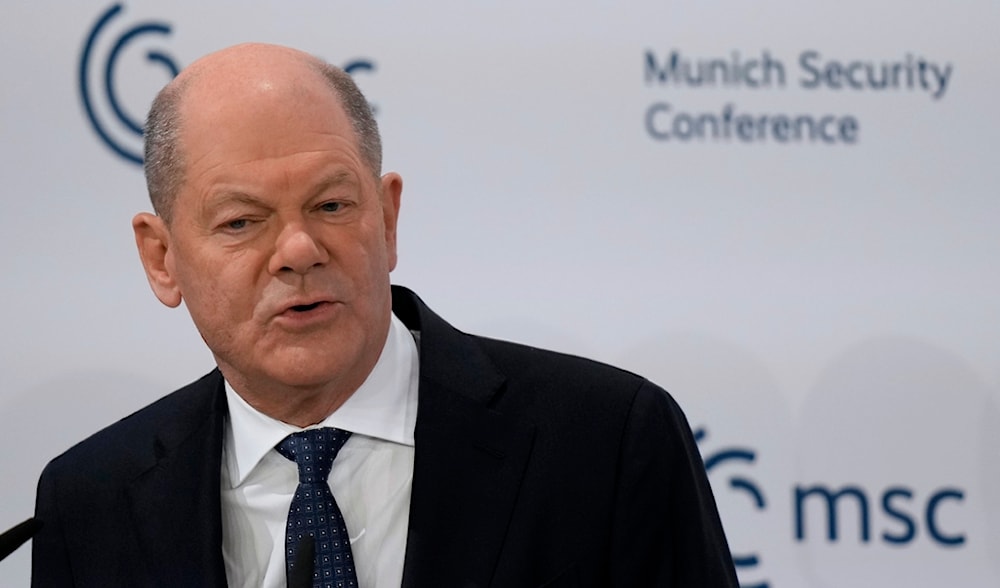Germany's Scholz slams Vance's remarks as 'foreign intervention'
Scholz has rejected Vance’s sharp criticism, reaffirming Germany’s longstanding stance against including the far-right's participation in governing coalitions.
-

Germany's Chancellor Olaf Scholz speaks during the Munich Security Conference at the Bayerischer Hof Hotel in Munich, Germany, Saturday, Feb. 15, 2025. (AP)
German Chancellor Olaf Scholz on Saturday dismissed any external influence on German elections following remarks by US Vice President JD Vance urging Europe to embrace far-right parties.
Addressing the Munich Security Conference from the same stage, Scholz countered Vance’s sharp criticism from the previous day, reaffirming Germany’s longstanding stance against including the far right in governing coalitions.
With Germany set to hold elections on February 23, Scholz emphasized, "We will not accept outsiders intervening in our democracy, in our elections. That is not appropriate -- especially not among friends and allies."
The chancellor pointed to instances where members of the far-right Alternative for Germany (AfD) had downplayed Nazi crimes. "A commitment to 'never again' cannot be reconciled with support for the AfD," Scholz said, referencing Vance's "never again" pledge, made on Friday from the Dachau concentration camp.
"That is why we will not accept outsiders intervening in our democracy, in our elections, in the democratic formation of opinion in favor of this party. That is not appropriate -- especially not among friends and allies. We decide for ourselves how our democracy will continue," he asserted.
Pressed on Vance’s remarks during a Q&A session, Scholz reiterated that the extreme right should be excluded from the political decision-making process.
Vance Signals US Foreign Policy Shift Under Trump
On Friday, Vance argued that the biggest threat facing Europe is not Russia or China, but internal restrictions on free speech. "The threat that I worry the most about vis-a-vis Europe is not Russia. It's not China, it's not any other external actor. And what I worry about is the threat from within. The retreat of Europe from some of its most fundamental values," he said.
He criticized European laws, particularly the EU's Digital Services Act (DSA), which aims to regulate online content and combat misinformation. While European leaders defend the DSA as necessary to counter disinformation and extremist propaganda, critics argue that it could be used to silence dissenting views.
"There is a new sheriff in town and under Donald Trump's leadership we may disagree with your views but we will fight to defend your right to offer it in the public square. Agree or disagree," Vance further said, reinforcing the administration's focus on free speech and sovereignty over multilateral commitments.
German President Frank-Walter Steinmeier strongly criticized the US foreign policy approach under President Donald Trump, arguing that it undermines established international norms and partnerships. His remarks come as European leaders grapple with growing uncertainty over Washington's commitments to NATO and transatlantic security.
"It is evident that the new American administration adheres to a worldview that is very different from ours, one that shows no respect for established rules, for partnerships that have developed over a long period, and for the trust that has been built over time. We cannot change this. We must accept it, and we will deal with it," Steinmeier stated.
Read more: Europe sees US as a 'necessary partner, not ally,' poll finds

 3 Min Read
3 Min Read









